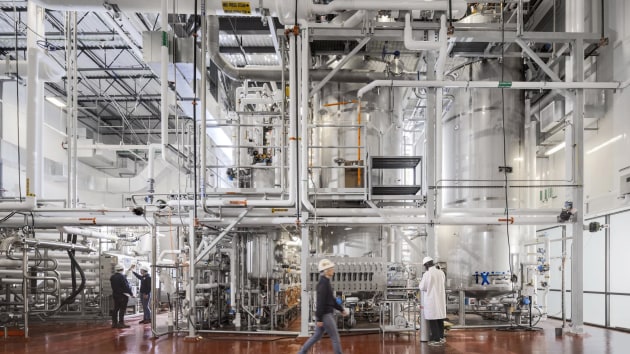Throughout the food and beverage sector, there is an increasing focus on making operations more sustainable, efficient, equitable, nutritious, and profitable. Rockwell Automation ANZ food and beverage industry lead, Glen Jacob, looks at the unique opportunities alternative protein manufacturers have to implement systems today for maximum impact in the future.
As the world’s population heads towards an expected nearly 10 billion by 2050, enhancing the sustainability and productivity of existing producing and processing methods, plus adding new alt protein options will both be important to meet the accelerated demand for food and beverage products.
For traditional meat, dairy, and other food manufacturers, this often involves taking a wholistic look at operations and looking for areas that can be improved with automation, data analysis and process optimisation.
But for the emerging alt proteins sector, companies have a unique opportunity to implement processes and systems now that will be of the greatest benefit in the future. One of the key considerations for alt protein companies looking to scale up quickly and cost-effectively, is implementing automation and digital technologies early.
It’s worth noting that sometimes traditional and alt protein industries may work side-by-side, such as in the case of precision fermentation, which takes milk fats, proteins, and other byproducts of traditional dairy processes, and utilises these to create new products.
Data opens up possibilities
Having the right technology to begin recording and analysing data early in the development stage can be a major benefit to alt protein startups looking to scale up. It means that the right data has already been collected, allowing for better testing and modelling using digital inputs.
Rather than manually testing hundreds of batches to see which product is the most effective, modelling can be done to predict the most likely to be successful, and narrow this down to the 20 most likely, for example, saving time and cost.
To effectively scale up, companies need to look at what products have the best potential ROI, and then look at how to implement the best technology at the lowest cost. It’s all about finding a product that is nutritious, profitable, and repeatable, and this is where automation can help startups find the ideal product faster.
The benefits of automation apply to every part of the food and beverage manufacturing chain from end to end, starting at raw materials, through to processing, waste minimisation, byproduct extraction, and even the packaging of the finished product.

for food and beverage manufacturers. (Source: Rockwell Automation)
Collaboration is critical
Rockwell Automation has worked with key contributors to major FDA-approved alt protein manufacturing facilities in North America (which is leading the charge in this sector globally). One of the main learnings taken from this experience is the need for collaboration to grow this emerging sector.
Collaboration needs to involve existing food and beverage manufacturers, startups, government, academia, and equipment suppliers, all of which have important roles to play in taking alt proteins from an exciting prospect to a commercially viable reality.
In the Australian market, there are currently lots of small startups, and it’s difficult for them to scale without industry-specific investment, government funding, and academic support to create optimum solutions that are tested and proven before moving to the next stage of development.
Equipment suppliers need to be an active participant in these ecosystems, too. They need to be ready to innovate, because new sectors and new products often require new and specialised equipment to manufacture in a way that is compliant, efficient, and sustainable.
An ongoing journey
Alt proteins is still a relatively new sector, and like most existing sectors, there’s no “one size fits all” when it comes to automation, technology, and equipment. Rockwell Automation is eager to learn with the ecosystem as we continue to customise our approaches to refine solutions for the alt proteins sector.
Rockwell has helped food and beverage manufacturers scale up and optimise their operations for decades, both in Australia, and around the world, and the same processes can be applied to the alt proteins sector.
It’s about continually refining processes, using data intelligently, and providing ongoing support that is ready to adapt to new circumstances.





